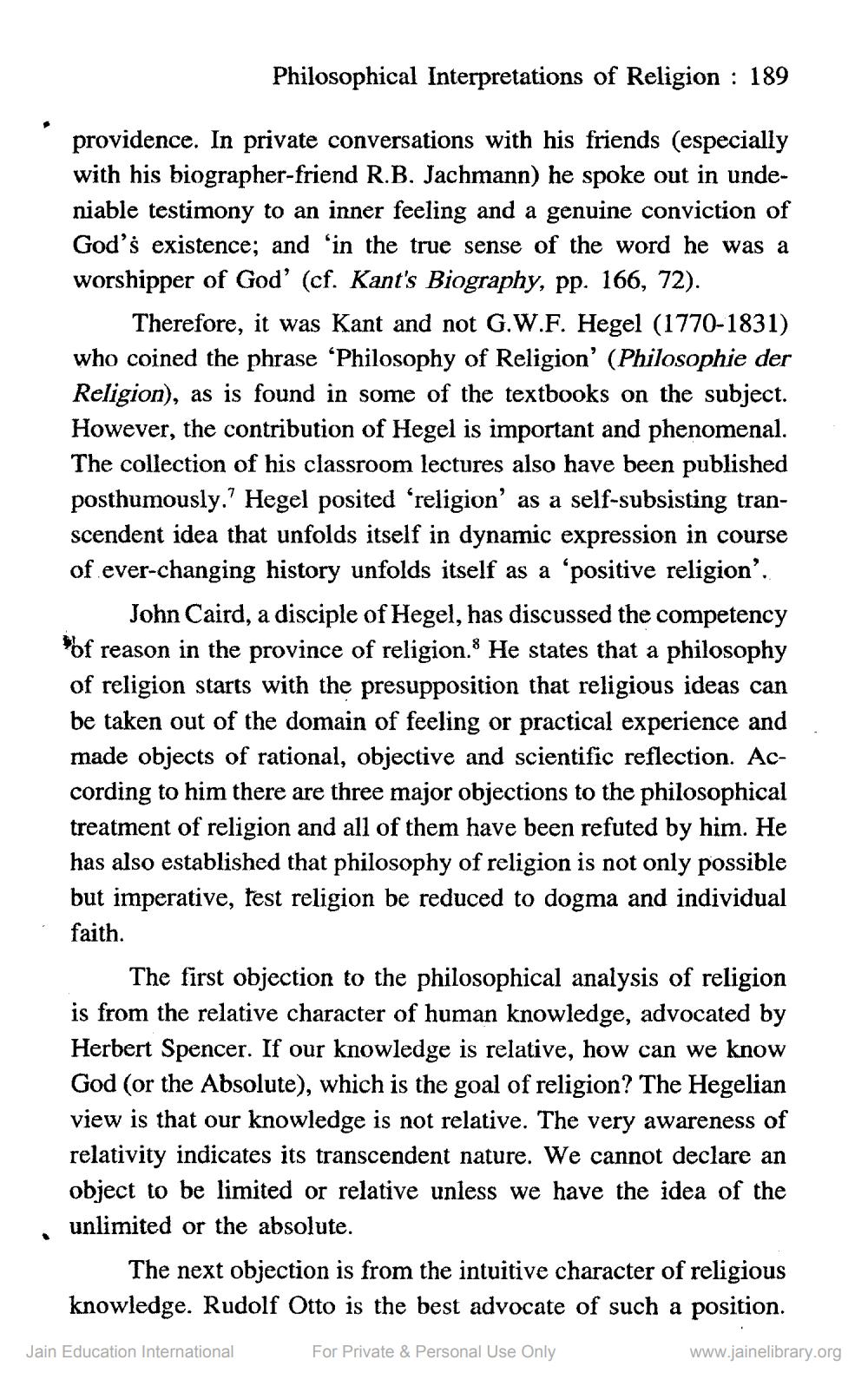________________
Philosophical Interpretations of Religion : 189
providence. In private conversations with his friends (especially with his biographer-friend R.B. Jachmann) he spoke out in undeniable testimony to an inner feeling and a genuine conviction of God's existence; and 'in the true sense of the word he was a worshipper of God' (cf. Kant's Biography, pp. 166, 72).
Therefore, it was Kant and not G.W.F. Hegel (1770-1831) who coined the phrase “Philosophy of Religion' (Philosophie der Religion), as is found in some of the textbooks on the subject. However, the contribution of Hegel is important and phenomenal. The collection of his classroom lectures also have been published posthumously.' Hegel posited “religion as a self-subsisting transcendent idea that unfolds itself in dynamic expression in course of ever-changing history unfolds itself as a 'positive religion'.
John Caird, a disciple of Hegel, has discussed the competency of reason in the province of religion. He states that a philosophy of religion starts with the presupposition that religious ideas can be taken out of the domain of feeling or practical experience and made objects of rational, objective and scientific reflection. According to him there are three major objections to the philosophical treatment of religion and all of them have been refuted by him. He has also established that philosophy of religion is not only possible but imperative, test religion be reduced to dogma and individual faith.
The first objection to the philosophical analysis of religion is from the relative character of human knowledge, advocated by Herbert Spencer. If our knowledge is relative, how can we know God (or the Absolute), which is the goal of religion? The Hegelian view is that our knowledge is not relative. The very awareness of relativity indicates its transcendent nature. We cannot declare an object to be limited or relative unless we have the idea of the unlimited or the absolute.
The next objection is from the intuitive character of religious knowledge. Rudolf Otto is the best advocate of such a position.
Jain Education International
For Private & Personal Use Only
www.jainelibrary.org




